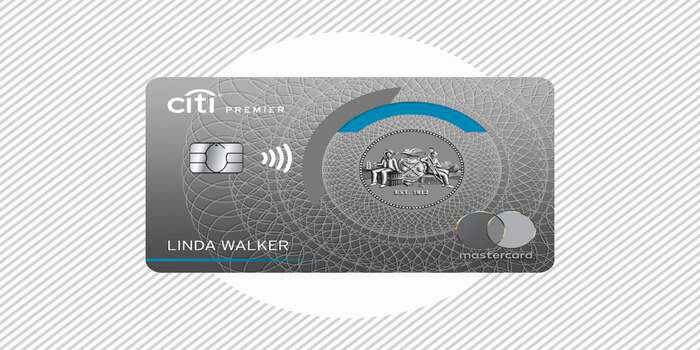The Smart Shopper's Guide to Using Basis Points for Better Financial Decisions
Jan 14, 2024 By Susan Kelly
As a savvy consumer, you know that every penny counts when it comes to your finances. That's why understanding Basis Points is essential for navigating the world of investments, loans, and credit cards. In this guide, we'll break down the concept of Basis Points and show you how to use them to your advantage. Whether you're a seasoned investor or just starting out, you'll learn valuable tips and tricks for financial decision-making that can help you achieve your goals.
So, let's dive in and discover how to harness the power of Basis Points for better financial outcomes.
A Professional's Handbook to Enhance Your Financial Knowledge
As a professional, do you want to enhance your understanding of finances? Then this is for you!

Benchmark Interest Rates
Basis Points are a unit of measurement used to express changes in benchmark Interest Rates set by central banks. For instance, if the Federal Reserve increases the target rate by 25 Basis Points, it indicates an increase of 0.25 percentage points in the interest rate. This may not seem like a significant increase, but it can have a considerable impact on the economy and financial markets.
Understanding Basis Points is crucial for investors, economists, and anyone interested in the financial markets, as it allows them to track changes in Interest Rates and financial decision-making.
Quantifying Changes in Bond Yields
Basis Points are an important unit of measure that helps quantify changes in yields of bonds and fixed-income securities. A basis point represents one-hundredth of a percent and allows for easy comparison of returns and risks associated with different bonds. For instance, if a bond's yield increases from 4.5% to 4.7%, this would be a 20 basis point increase. Using Basis Points, investors and analysts can quickly and accurately assess the performance of various investment options.
Benchmarking Financial Products
Basis Points are commonly used to measure changes in financial products' fees, costs, and returns. These products include mutual funds, exchange-traded funds, savings accounts, or credit cards. For example, if a mutual fund charges an annual fee of 0.75%, this would be equivalent to 75 Basis Points. This standard unit is beneficial for investors and consumers to compare different financial options and make informed decisions. Using Basis Points, they can easily compare the costs and returns of other financial products and choose the one that best suits their needs.
Recent and Historical Examples in Basis Points
Are you interested in exploring recent and historical examples in Basis Points? If so, we have some valuable insights to share with you. Let's dive in!"
Federal Reserve's Strategic Move (December 2022)
- In December 2022, the Federal Reserve raised the target range for the federal funds rate by 25 Basis Points.
- The rates changed from 0.00-0.25% to 0.25-0.50%.
- Positive economic indicators influenced the decision.
- The move was also aimed at addressing inflation expectations.
European Central Bank's Response (March 2020)
- In March 2020, the European Central Bank took a pivotal step amidst.
- 10 Basis Points reduced the deposit facility rate from -0.50% to -0.60%.
- This move was part of a broader stimulus package aimed at mitigating the economic repercussions of the pandemic.
Bank of Japan's Pragmatic Approach (October 2019)
- In October 2019, the Bank of Japan maintained a nuanced stance.
- The short-term policy rate remained at -0.10%.
- The target level for the 10-year government bond yield was kept at around 0%.
- This decision was made against escalating global uncertainties and domestic economic challenges.
Impact on Global Finance
- Central banks use Basis Points to communicate changes in Interest Rates
- The Federal Reserve's recent move shows responsiveness to economic improvements.
- The European Central Bank's decision reflects an agile response to an unprecedented crisis.
- The Bank of Japan's strategy highlights the delicate balance central banks must maintain amidst uncertainties.
How To Use Basis Points?
Basis Points (bps) measure small percentage changes in finance, such as Interest Rates and bond yields. One basis point equals 0.01% or 0.0001 in decimal form.
Simple Conversion for Clarity
- To convert Basis Points to a percentage, divide by 100.
- To determine Basis Points from a percentage, multiply by 100.
Avoiding Ambiguity with Basis Points
- Basis Points are a precise way to communicate minor changes in percentages.
- They eliminate ambiguity and confusion that can arise from using percentage figures.
- For example, an increase in bond yield from 4.5% to 4.7% is accurately stated as a rise of 20 Basis Points.
- This makes it easier to understand and interpret small changes in financial data.
Quantifying Central Bank Actions
- Central banks, including the Federal Reserve, use Basis Points to communicate changes in benchmark Interest Rates.
- A 25 basis point increase in the target rate by the Fed means a 0.25 percentage point increase.
Comparing Returns and Risks

- Basis Points are used to measure changes in bond yields and fixed-income securities.
- 1 basis point is equivalent to 0.01% or one-hundredth of a percentage point.
- Basis Points aid in comparing returns and risks among different bonds.
- For example, a decrease of 20 Basis Points in a bond yield indicates a drop from 3.2% to 3.0%.
Informed Decision-Making in Finance
- Basis Points measure changes in financial products like mutual funds, ETFs, savings accounts, and credit cards.
- It simplifies the process for investors and consumers to make informed decisions.
- A mutual fund with an annual fee of 0.75% equals 75 Basis Points.
Conclusion
Understanding Basis Points is a fundamental concept for making informed financial decisions. It can help you compare different financial products and services based on their Interest Rates or yields. Using Basis Points, you can negotiate better deals with lenders or investment managers and track your investment performance more accurately.
However, it's important to remember that Basis Points are just one of many factors you should consider when making financial decisions. You should also consider your risk tolerance, investment goals, and financial situation. With the proper knowledge and tools, you can use Basis Points to your advantage and achieve your financial goals more effectively.

Navigating the Landscape of B2B Marketing: Strategies and Tactics

Things You Need to Know About Tax Software

IRS Warns Tax ‘Refunds May Be Smaller in 2023’

A Complete Citi Premier Card Review 2022

The Lure of Convenience Checks

Unlock Rapid Growth with SMB Marketing for Insurance Companies

Cash App Taxes Review 2024: Everything You Need to Know

What is the Effect of Background Check on Your Credit Score?

Credit Cards That Offer 2% Or More In Cash Back On All Purchases

